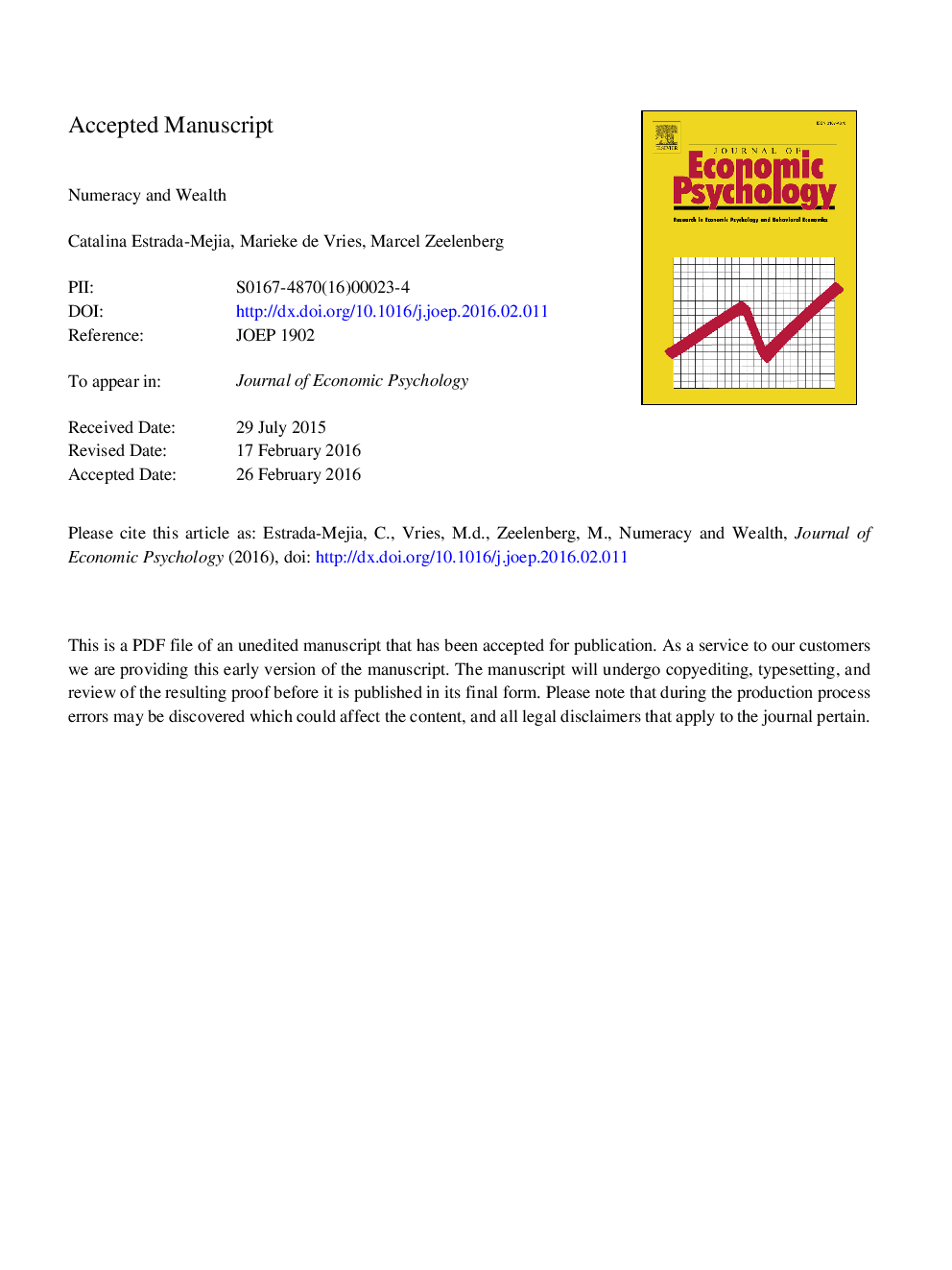| Article ID | Journal | Published Year | Pages | File Type |
|---|---|---|---|---|
| 7244332 | Journal of Economic Psychology | 2016 | 43 Pages |
Abstract
Numeracy is defined as the ability to understand and use numerical information. We examined the relationship between numeracy and wealth using a cross-sectional and a longitudinal study. For a sample of approximately 1000 Dutch adults, we found a statistically significant correlation between numeracy and wealth, even after controlling for differences in education, risk preferences, beliefs about future income, financial knowledge, need for cognition or seeking financial advice. Conditional on socio-demographic characteristics, our estimates suggest that on average a one-point increase in the numeracy score (11-point scale) of the respondent is associated with 5 percent more personal wealth. Additionally, we find that numeracy is a key determinant of the wealth accumulation trajectories that people follow over time. Over a 5-year period, while participants with low numeracy decumulate wealth, participants with high numeracy maintain a constant positive level of wealth.
Related Topics
Social Sciences and Humanities
Business, Management and Accounting
Marketing
Authors
Catalina Estrada-Mejia, Marieke de Vries, Marcel Zeelenberg,
